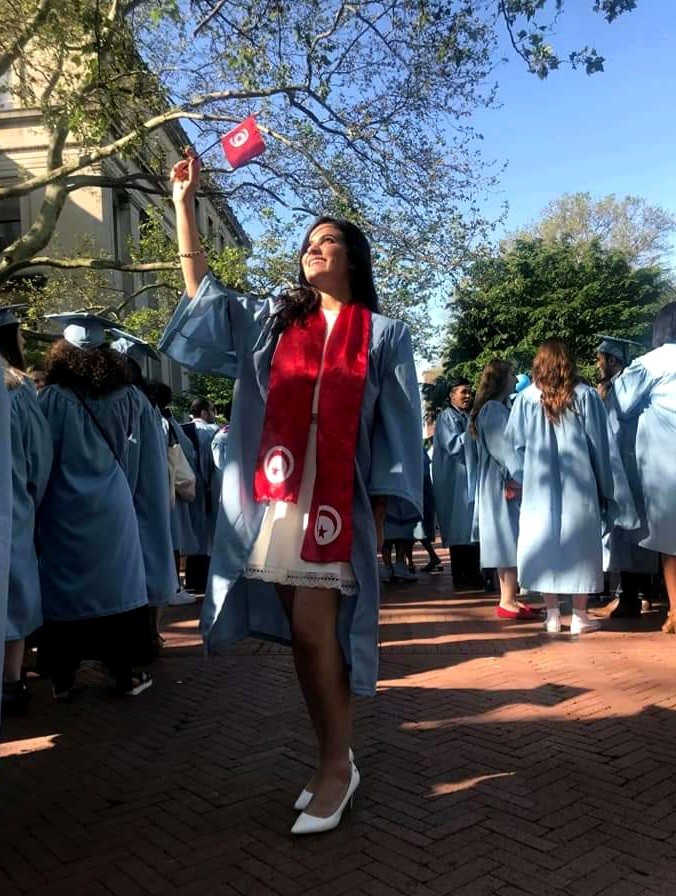How did you land at Columbia?
I first learned about Columbia University through my brother, who got admitted there but chose to go to a different university. Aware of my dedication to advocacy for women's rights, he recommended that I particularly learn about Barnard college, the undergraduate women’s college at Columbia University. In my senior year of high school, while most students were dedicating their time and effort to the national Baccalaureate exam, I was preparing my college applications and Barnard was my top choice. Having always had a co-ed education in Tunisia, I was ready to embark on an undergraduate education journey where women's voice and intellect were at the center of my experience, and where I also had access to a plethora of academic and professional resources at the University and New York City.
What has Columbia University offered you?
My time at Barnard particularly, and Columbia University generally, has been the most challenging yet rewarding and most crucial experience during my transition from a high schooler to a young woman in the Big Apple. My advisors, professors, the organizations I led, the community I took part in, and the career opportunities Columbia offered, were all a pillar to my personal, academic, and professional growth.
Majoring in Math and Statistics, I found myself one of a few women in my classes. I saw the need to strengthen a community of women in Math, and in STEM overall, and that’s where I helped revive and lead the Columbia Chapter of the Association for Women in Math; and the university was readily available to support this mission, from the Math department to Undergraduate Student life.
The students and professors I came to interact with were also crucial to navigating my career options, job interviews, and offers. From long nights in the dorms and in the library helping me practice for my job interviews to connecting me to a network of professionals, to checking up on my progress, I was supported in every step of my career development.
What it is like to be Tunisian at Columbia University?
It’s a privilege to be part of the student, and now alumni community at Columbia University. Representation matters, especially that of our Tunisian women who manage to thrive in man-dominated fields. I’ve also come to realize how grateful and privileged I am for the environment I had in Tunisia from teachers to family to friends, and for the experiences that built my resilience early on. It takes a village.
Being Tunisian at Columbia also means being part of the wider Arab community. That’s why I took part in the founding board and now elected executive board of the Columbia Arab Alumni Association, where we aim to unite our alumni in bringing Columbia to the Arab world for the benefit of our home communities.
